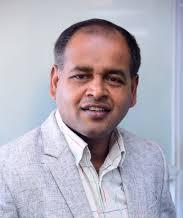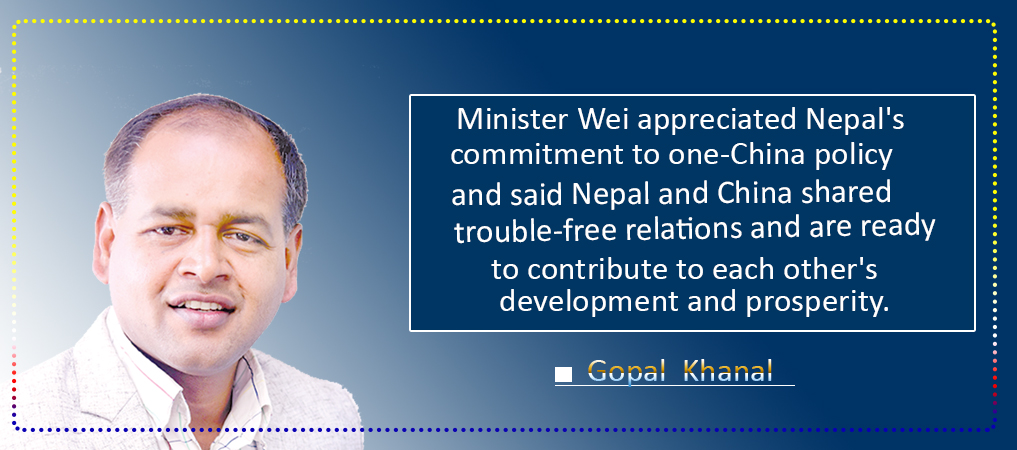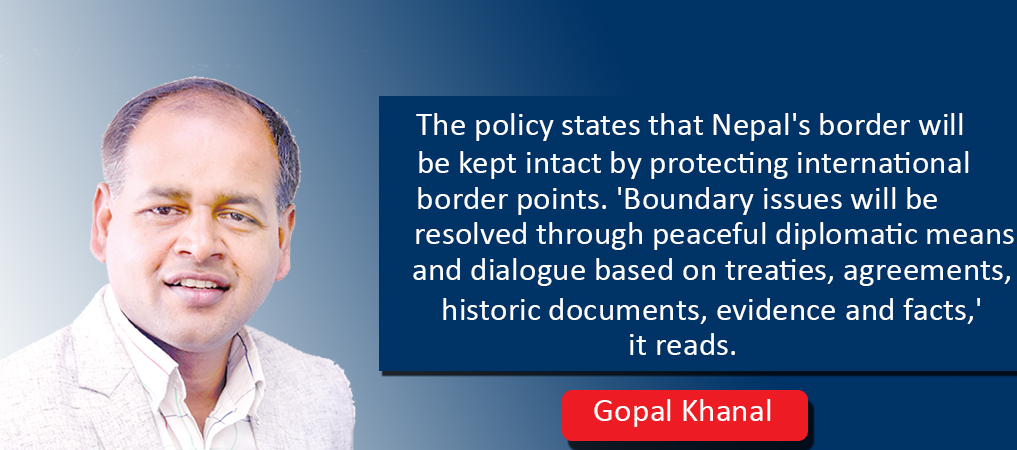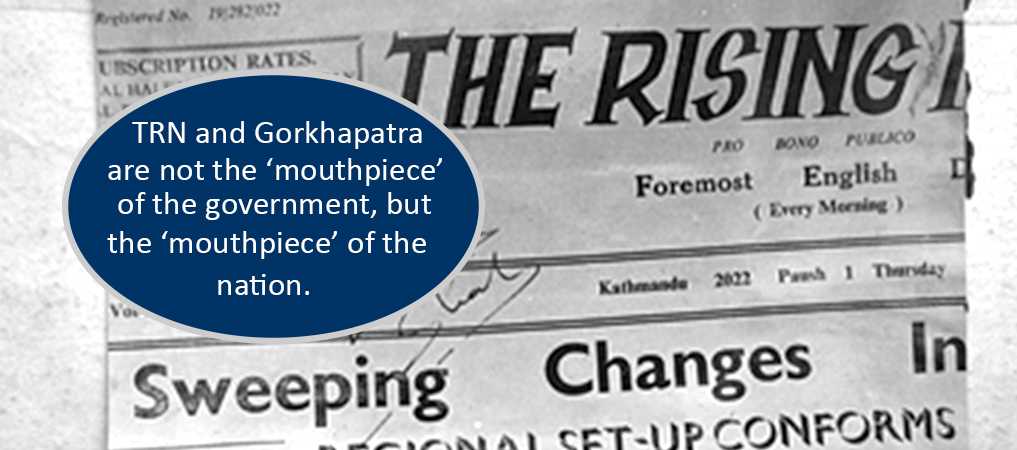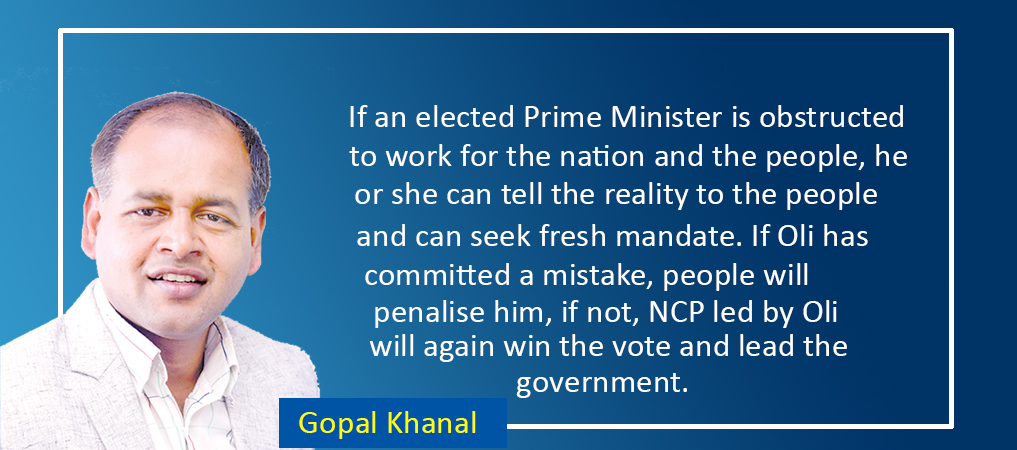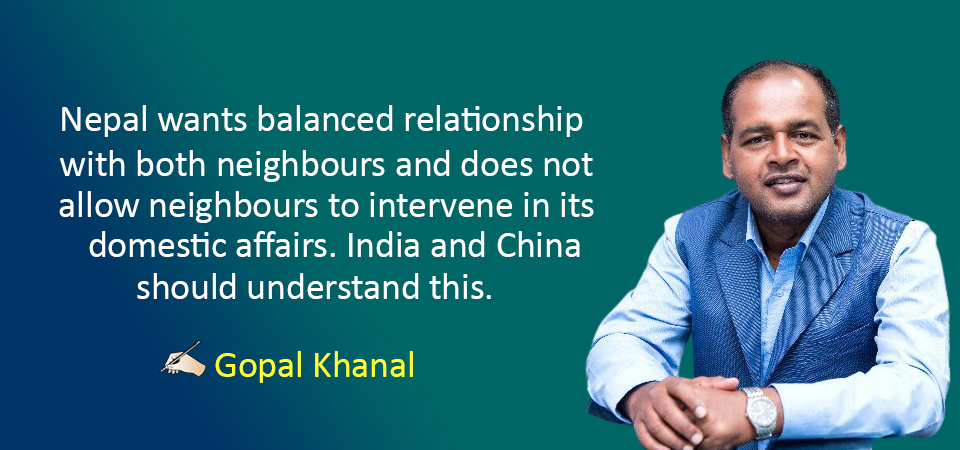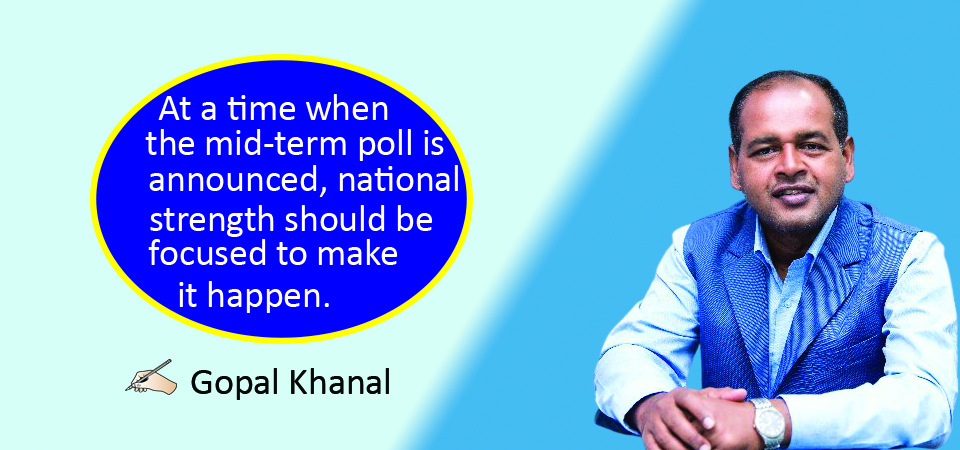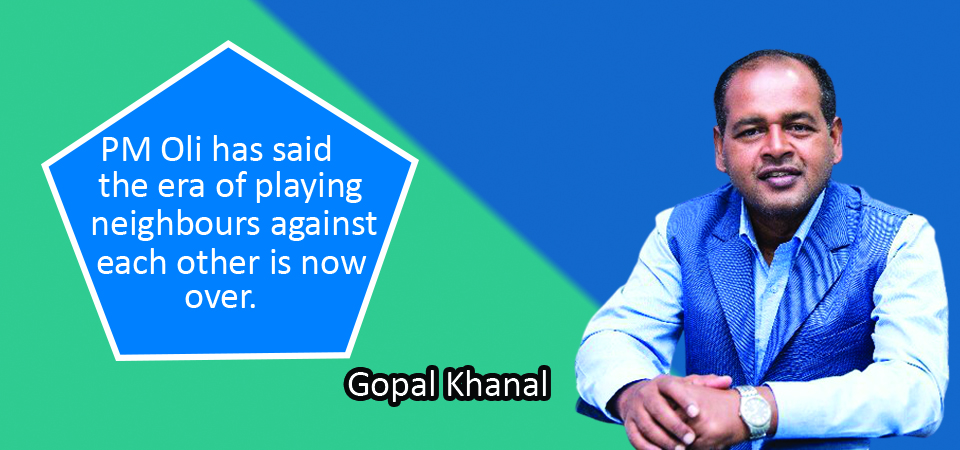Oli’s Constitutional Move
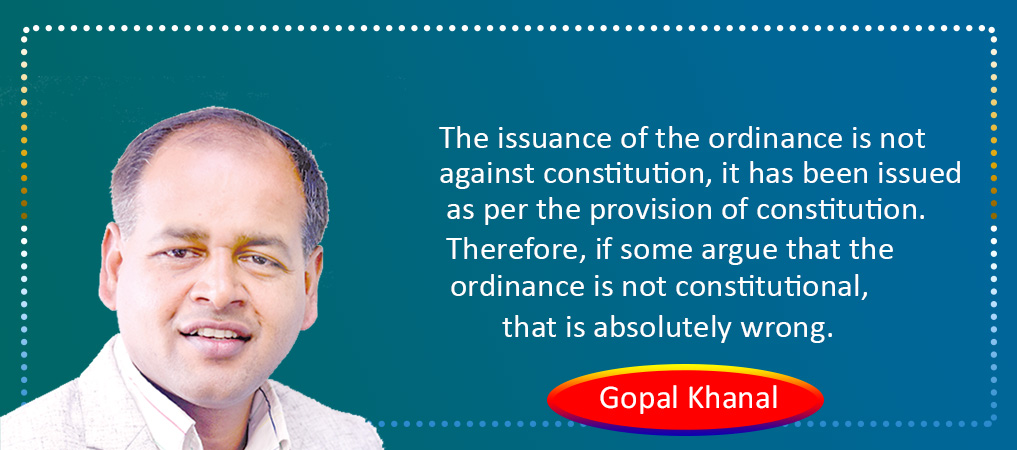
Gopal Khanal
On December 15, the government introduced an ordinance to amend the existing Constitutional Council (Functions, Duties, Powers and Procedures), which the President certified immediately in line with Article 114 (a) of the constitution.
With the new ordinance in place, the Constitutional Council (CC) meeting can convene and make decisions if there are only three members present. The previous provision required at least five members to be present in the meeting to take any decision. Currently, only the post of Deputy Speaker is vacant in the six-member CC.
Protest
It was anticipated that the ordinance would trigger political reactions. Some leaders within the ruling and opposition parties have protested the Prime Minister's move, terming it a step towards authoritarianism. The ruling party leaders – Pushpa Kamal Dahal Prachanda, Madhav Kumar Nepal and the main opposition leader Sher Bahadur Deuba - have expressed their disagreement and asked the Prime Minister to withdraw the ordinance unconditionally.
Before passing judgement on the ordinance, we should understand the politics of ruling and opposition leader. The Prachanda-led faction within the ruling party has been channelling all its strength to oust Oli from power. They think Oli should hand over both the positions to them quietly. But, there is no logical reason to hand over power to Prachanda and Nepal since they are not better than Oli in any terms.
The Prime Minister could not work properly due to undue apolitical pressure from his party, which impacted the appointment in the constitutional bodies, too. When there was understanding in ruling side, opposition leader Deuba skipped the CC meeting. As the opposition leader seemed ready to attend the meeting, Speaker Agni Prasad Sapkota refused to show up in the meeting. It was understandable that Speaker Sapkota's move was deliberate to fail the Prime Minister. Against this backdrop, the ordinance was introduced to pave the way for recommending the names in the constitutional bodies.
The issuance of the ordinance is not against constitution, it has been issued as per the provision of constitution. Therefore, if some argue that the ordinance is not constitutional, that is absolutely wrong. It has not undermined the democratic norms and values since there is a constitutional provision as well as the political understanding that ordinance can be introduced when there is no regular session of parliament.
Questions are naturally raised as to why Prime Minister Oli decided to issue that ordinance. The answer seems simple - the constitutional bodies have remained vacant for a long time and they should be filled with timely appointment of competent figures. The provision of recommending the names in constitutional bodies in consensus became a complicated process and posed a stumbling block to appoint the recommended persons in the crucial organs of the state.
Is Prime Minister Oli mulling to exercise authoritarianism? Can this ordinance be an evidence of his aspiration for dictatorial regime? It is completely an erroneous conclusion to project Oli, who spent his significant portion of his life for democracy and human rights, as one who demonstrate authoritarian character.
On April 20, Prime Minister Oli had introduced two ordinances, but following a huge pressure from within and outside the party, Oli compelled to retreat. Neither did he think to rule the country unconstitutionally nor was he trying to practice absolute rule. His focus was to fill the constitutional bodies so that these bodies could perform their constitutional duties and responsibilities.
Prime Minister Oli stayed back signalling that he could not move without the larger support of the political parties. But, nothing progressed to appoint the bodies. How long do the constitutional bodies remain vacant? It was pressing question since it was all related to the function of the government and effectiveness of the constitutional wings.
Therefore, Prime Minister took this relatively unpopular yet compulsive move. The role of the Speaker of House of Representatives hastened this move since he could not play a neutral role as Speaker. Instead, he acted under the instruction of Prachanda. If speaker was responsible and serious about his role, he should have attended the meeting and put forth his statement.
One thing should not be undermined. Among the contemporary politicians of Nepal, Oli's democratic credential is not lesser than others. Oli has never resorted to the politics of violence and disruption and he has fought within the system. Similarly, Oli has never compromised the rule of law, and has always stood as a staunch protector of the political system and values. Forget the classical communism or the notion of dictatorship of proletariat that had been already obsolete. Oli has proved himself as a democratic communist, who believes in fair competition and multiparty system - twin pillars of democratic system.
Interim statute
Even in the stalemate of the party, he has been constantly saying that the two chairmen can decide the further course of the party, not by the other forums on the basis of majority. It is the provision of party statue and it also reflects the sentiments of party unification. The NCP can decide on the basis of majority and minority, but the interim party statue stresses consensus between the two chairs before taking any key decisions.
Oli should be judged on the basis of who are recommended in the constitutional bodies, whether meritocracy is measured or not, whether the inclusiveness is properly followed or not. The leaders should look their past and also should see the tainted faces, which are now in jail for their involvement in corruption.
(Khanal is consulting editor at Gorkhapatra Corporation. khanalbro@gmail.com)
Recent News

Do not make expressions casting dout on election: EC
14 Apr, 2022
CM Bhatta says may New Year 2079 BS inspire positive thinking
14 Apr, 2022
Three new cases, 44 recoveries in 24 hours
14 Apr, 2022
689 climbers of 84 teams so far acquire permits for climbing various peaks this spring season
14 Apr, 2022
How the rising cost of living crisis is impacting Nepal
14 Apr, 2022
US military confirms an interstellar meteor collided with Earth
14 Apr, 2022
Valneva Covid vaccine approved for use in UK
14 Apr, 2022
Chair Prachanda highlights need of unity among Maoist, Communist forces
14 Apr, 2022
Ranbir Kapoor and Alia Bhatt: Bollywood toasts star couple on wedding
14 Apr, 2022
President Bhandari confers decorations (Photo Feature)
14 Apr, 2022



